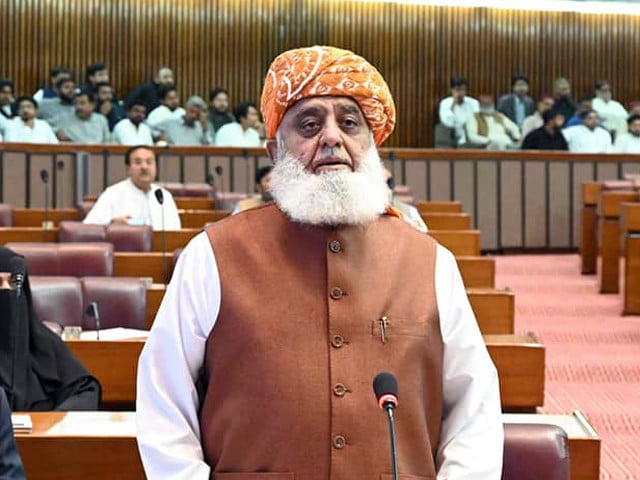Maulana Fazl-ur-Rehman: Government is the Biggest Obstacle to the Madaris Bill
If there is already consensus, then why are there objections? The Gazette notification should be issued. What punishment is being given to the Madaris now?
The secret has been revealed today that our legislation will be according to someone else’s will. It should be said that we are not free, we are slaves.” – Statement in the National Assembly.
ISLAMABAD ( WEB NEWS )
Maulana Fazl-ur-Rehman, the head of Jamiat Ulema-e-Islam (F), has stated that the government is the biggest obstacle to the Madaris Bill. He questioned why, if there was an agreement, objections are still being raised and urged the issuance of a Gazette notification. He also asked why religious schools (Madaris) were being punished and emphasized that the lawmaking process seems to be influenced by others’ directives. He pointed out that the current situation reveals that Pakistan’s laws might be shaped by external influences, implying a lack of national autonomy.
In his speech in the National Assembly, Maulana Fazl-ur-Rehman remarked that the amendment to the Societies Registration Act had already been passed and the Gazette notification should be issued. He highlighted that the 26th Constitutional Amendment had been approved by consensus, and the financial structure of Madaris had been discussed and agreed upon by all parties. He stressed that religious schools had long been negotiating with the government, particularly in regard to their financial structure, curriculum, and organizational framework.
He referred to previous agreements in 2004 and 2010, where the government and religious schools had reached an understanding on key issues. However, after the 18th Amendment, the government raised new questions. Maulana Fazl-ur-Rehman explained that the law on Madaris had already been passed, but the Gazette notification had not been issued. He further criticized the delay and insisted that the agreed-upon laws be implemented.
He also expressed concern over external influence on Pakistan’s legislative process. Maulana Fazl-ur-Rehman drew a comparison to the influence of foreign powers in domestic matters, questioning why international pressure should shape internal decisions, particularly when it comes to the rights of religious institutions in Pakistan. He pointed out the contradiction in the government’s handling of such matters, especially when foreign entities influence the release of political figures, but no such resistance is shown regarding religious education.
He concluded by reiterating that religious parties have always supported Pakistan’s constitution, democracy, and the rule of law. He questioned why there was resistance to religious education and emphasized that religious schools have consistently shown loyalty to the country. He firmly stated that the biggest obstacle to the Madaris Bill is the government itself.

